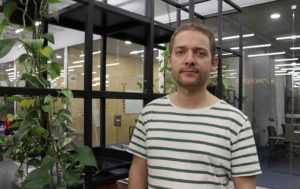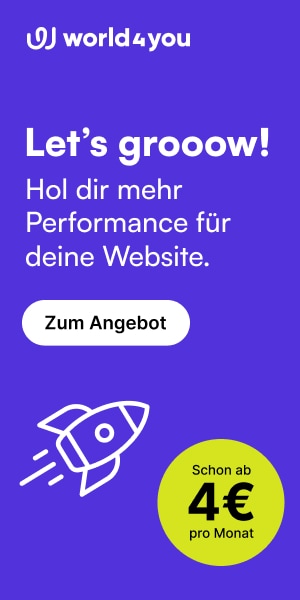In Practice: Why and How Accountants, Teachers, Managers Switch To Developer Careers?

760K
This is an estimation of how many ICT professionals are missing in European countries, showed the Innovative Europe Report 2019 by McKinsey. There’s no need to elaborate on the fact why Europe needs more people with digital and ICT skills – it’s just the foundation of a globally relevant innovative economy. Upskilling and retraining are among the keywords that the European Commission uses to address the challenge on policy level. In 2017, the EC even started an initiative called the Digital Skills and Jobs Coalition, aiming to support the upskilling and retraining of the workforce and in particular, take concrete measures to support small and medium enterprises (SMEs) who face specific challenges in attracting and retaining digital talent as well as retraining their workforce. But how is all that happening in practice?
Typically European, such initiatives are discussed long and then launch with grants to train trainers who would then train people who need upskilling. But apart from the policy talk, what is happening in the short and mid-term as the gap continues to grow every year? The short answer is – the private sector is taking care of its own needs. In the past several years, in Bulgaria, both companies, but also private educational institutions, such as Telerik Academy and SoftUni, have offered people who are on the lookout for a new career start in IT an opportunity to acquire the basic skills they’d need to enter the tech ecosystem.
1.
Great, but how does it work in practice
In media, there are numerous stories about accountants, teachers, legal advisors, even filmmakers who took the challenge to become software developers and pursue a career in Bulgaria’s fastest developing sector. The reason for this could be found in the many job options (around 3000 open positions are regularly available in the most popular jobs portal), or the high standard of living that the sector promises (see salaries and comparison to other countries). What no one seems to be talking about, however, is the practical side. How long and what exactly does it take for a person from a different field to become a junior developer, what are the challenges, what does a professional go through, are these people really going to IT for the high paycheck or there are also other reasons? And then – do IT companies employ requalified accountants or would prefer a junior fresh out of the university? Is a 40-years old ex-teacher less motivated to grow in an IT career than a 22-years-old developer?
To put together a more comprehensive picture, we talked to three different stakeholders in this retraining process – the educators, the employers, and of course people who’ve decided to change their career path and go to IT. Alexandra Mechkova is the CEO of Telerik Academy, a private academy for tech talent that was founded ten years ago to address Telerik’s own talent needs but quickly started grooming professionals for the entire industry. However, it continued to operate under the same brand after the company was acquired by the US giant Progress in 2014, and after it spun off as an independent tech-ed organization and a partner to all companies. Throughout the years, Mechkova has seen many interesting cases – mothers who went through the academy inspired by their children, people coming back from abroad, and of course many students choosing an IT career and going through their courses. With the time and observing the market, Telerik Academy designed a special six-month program aimed at both tech students and professionals who want to switch careers to software development. Yearly, around 300 – 400 people graduate from Telerik Academy Alpha and directly join the IT industry. This way the academy grooms up to 10-15% of the tech talent the software industry in Bulgaria demands or around 2400 people, according to the software association.
“Some of the participants have reached a point in their careers when they just don’t see further growth opportunities, and the IT sector opens a new horizon to them. Sometimes we even have people with managerial experience or business owners. And there are also people on the lookout for flexibility and better work-life balance,” shares her observations Alexandra Mechkova. According to her, there’s even an uprising trend of people with experience abroad who go through their programs and start working in the IT sector. In Telerik Academy, Quality Assurance (QA) is probably the hottest tech topic for professionals with different career backgrounds, says Mechkova. There are also Alpha programs in .NET, Javascript, and Java.
Based on her observations, the hardest part of the journey is usually the beginning as people are facing a completely new area. Also, learning habits sometimes need to be adjusted.
2.
Two career switchers
Maria Dineva and Alex Parvanov are two examples for people who decided to switch to software developers after working in a completely different field. They break down the learning process, the decisions they made, and the outcomes. Both of them tried different alternatives and then went for Telerik Academy’s Alpha – a six-months long program designed for fast-track entry into the sector.
Maria Dineva (30), mom of two, an English teacher, aikido trainer, a programmer

The decision: Maria, a culturalist by education and teacher by her previous career, was in her second year of maternity leave when she decided to go for coding. “I was a teacher for seven years, remembering what it means to teach for a whole day and the feeling of being exhausted at the end of the day, I thought that going back to take care of others’ kids, I won’t have the energy for my own,” she starts. This was the first reason for her to decide to switch the career path. Finances were the factor to choose a direction. So, IT stood out before other options. “I had the guts because I already knew people working in the sector and I knew they’d give me a hand in the process.”
The journey: Maria starts from 0. “I didn’t even have a smartphone, I used the computer for Word,” she recalls. “It was incredibly hard.” Maria first attended an introductory course in SoftUni during her pregnancy. Yet, the course was too long (2 years) and she decided to switch to Telerik’s Alpha Program. “I just couldn’t afford that with two babies.” She failed her first entry exam, drew back and felt down for a while. Then she got herself together and tried again, after two months of studying the provided by the academy materials. In the meantime, a friend of hers was a big support and motivator. But the hard part was yet to come.
“It took me six months full time plus the weekends. I was reading in the night, every time the baby woke me up. On the weekends I was studying the whole day. At least eight hours every day for six months,” says Maria. After all, the last time she had touched maths was in the seventh grade. Yet, looking back at this time, Maria says that motivation is the only thing one needs to become a programmer. “Also the trainers were helping a lot – both technically, but also when it comes to soft skills. The environment of the colleagues was also quite important, it elevated us all.”
The key factors: Probably the most important thing, apart from the great motivation, Maria outlines, was the support of the family. Her husband was supporting her throughout the whole process, and their parents were taking the children for the weekends so Maria could concentrate on studying. Not least, her friend didn’t let her give up.
The new role: Maria needed a week to start to work in a company, she was invited for a job interview even before graduation. She went to three other interviews, got two job offers, and chose one of them. “Going to the interviews I didn’t feel exactly prepared, I was quite nervous,” she remembers. Maria is currently a junior full stack developer in the user experience team of a US product company. When she first entered the company she needed some time to understand how things work. Luckily, all new team members were given three months to learn and gain the skills and knowledge they felt they were lacking.
The Sofia team of the company features 40 people and most of the developers come from the same academy, being retrained to developers after pursuing a different career.
+++ DailyData: How are developers learning new coding skills? Youtube, Github or… +++
Next steps: For now, Maria is not making huge ambitious plans but enjoying the process of getting to understand something new. “It’s a great field where you can learn every day. I’m this kind of person who needs to learn all the time.”
+++
Alex Parvanov (34), accountant, manager, developer

The decision: Alex Parvanov needed a change, after ten years as an accountant and having reached the top in the hierarchy in his domain – Chief Accountant in an international financial institution. While his company was integrating a new Business Intelligence system, he was sometimes sitting with the IT guys and noticed their calmness. At that moment, his work and responsibilities have overloaded him to a burnout. And he began thinking.
At that point, he was 33. “I thought that it might be too late to start something from scratch, or that it could be too big leap at that point,” he tells us. Then he thought that he cannot lose anything anyway. If it would turn out programming was not for him, he could always come back to accounting.
The journey: At first, Parvanov started attending courses at SoftUni. Yet, as the course there was longer, and he had limited resources and time, he switched to Telerik Alpha academy, where the complete course takes half a year. “There are too many new things for six months, and you need a lot of time to read, learn and exercise though,” he says. What helped him significantly were the additional brain relaxation courses or exercises where students were forced to socialize and work together on projects.
The new role: After graduating from the academy it took him two interviews and three weeks to find his job as developer in a UK-based product company. It then took him another three months to grasp where he is and what he’s doing. Although it all started with intros and meetings with the directors, understanding the product and the sales process, and the real work began somewhere else. “You anyway need to start with a task, even if it’s a small one. Otherwise, you cannot truly understand what is it all about and how things work. Already in the first week I was given a task to fix a small thing on the platform, which gave me the confidence that I can,” he says.
What changed for better: “Now, looking back to how I used to feel, and the stress with my previous job, and today, even though it’s not less stressful now, I’m quite happy I made this step,” says Alex Parvanov. What he likes about his new job is that the atmosphere is extremely friendly, communication is open and everybody’s free to express his opinion regardless of the position in the company. “There’s one important thing – as a programmer you have instant feedback – from team members, from testers, etc., as an accountant – you might receive feedback from the state in seven years from now,” he smiles.
The biggest challenge: “It’s quite hard for people who come from management positions. The transition from someone who everyone asks to the one that asks is a hard-to-get-used-to new role. I had so many questions and I couldn’t bother my colleagues all the time.”
Next steps: “My ambition is to be a software architect at some point. Yet, I want to develop skills in the tech domain. I’ve been a manager and I don’t want to come back to this.”
One advice: “If you have the slightest doubt, that you don’t like your job anymore, reach out to technology. A try never hurts”
3.
Who’s hiring requalified developers and why?
As the market is experiencing talent shortage and not all companies are able to invest in the resources to open up their internal academies, businesses often partner with software educators to source junior (and not only) talent. We talked to two companies, who hire retrained specialists, about their observations and experience so far. Grafixoft is a Bulgarian service company that was started in Gabrovo in 1998, and today employs over 100 people, and Maria Pencheva, the Business Development Manager shares why professionals who have switched careers are more motivated. And Rositsa Noneva, a project manager at Haemimont, one of the leading software service providers in Bulgaria, has noticed that diverse backgrounds enrich tech teams.
What is your experience with hiring retrained specialists?
Maria Pencheva: During the last 12-18 months, the employees who started working with us have different working backgrounds. About 20% of our colleagues did something completely different before they started in software development. We have colleagues who were civil engineers, lawyers, journalists, flight attendants, and teachers. Most often the reason to change the field of work is that working as a developer or QA brings challenges and satisfaction in a very fast-growing business.
Rositsa Noneva: For more than 15 years Haemimont has been giving opportunity to people who would like to change their career path. We believe people learn and develop themselves throughout their whole life. Choosing the best career at the age of 18 might not be achievable for everyone. We are prone to give a new chance to such people. We have hired people with university degrees in Architecture, Business administration, Geodesy, Transportation engineering, English Literature, Philosophy, and even Visual Arts.
Why is the hiring of requalified employees so important to the company?
M.P.: The required skill set for being a software engineer includes a variety of different qualities such as analytical thinking, engineering approach and very often creativity. Bringing people from other professional areas is not only enriching the culture of the company but also gives a wide spread of skills and expertise that could be beneficial for the team. For the last twelve months, the number of employees in our company has increased by over 40%, thus the re-qualified specialists are a good way to improve the market situation and balance the high demand.
What are your observations regarding the career ambitions of these employees?
M.P.: These professionals are not just starting their careers and usually have significant work experience, which brings along all the good practices like work habits, discipline, and adaptability. In addition, being in some other sphere usually means that the person has climbed the corporate ladder at least a bit. As a result, when starting over again there is a huge desire for proving oneself and catching up the level. The motivation to move forward and succeed is one of the most valuable things.
R.N.: Every person has different ambitions. In particular, this is valid for career growth ambition. Some people are focused on climbing the career ladder while for others it is important to have challenging assignments and learn new things every day. I have not seen different persuasion from retrained personnel based only on the fact they have decided to change their career.
What are the pros & cons of hiring requalified employees?
M.P.: Their previous experience is also a plus – eventually, it becomes applicable in their new job. A possible disadvantage could be if the person brings along bad work habits or if they turn out to be inflexible or not open for changes, which in the dynamic world of IT is not an option.
R.N.: It is a plus that retrained personnel brings diversity in the team and helps to look from different perspective on the everyday challenges. As a minus, we can say that it usually takes more time to train such people compared to others with a degree in Computer Science.




























